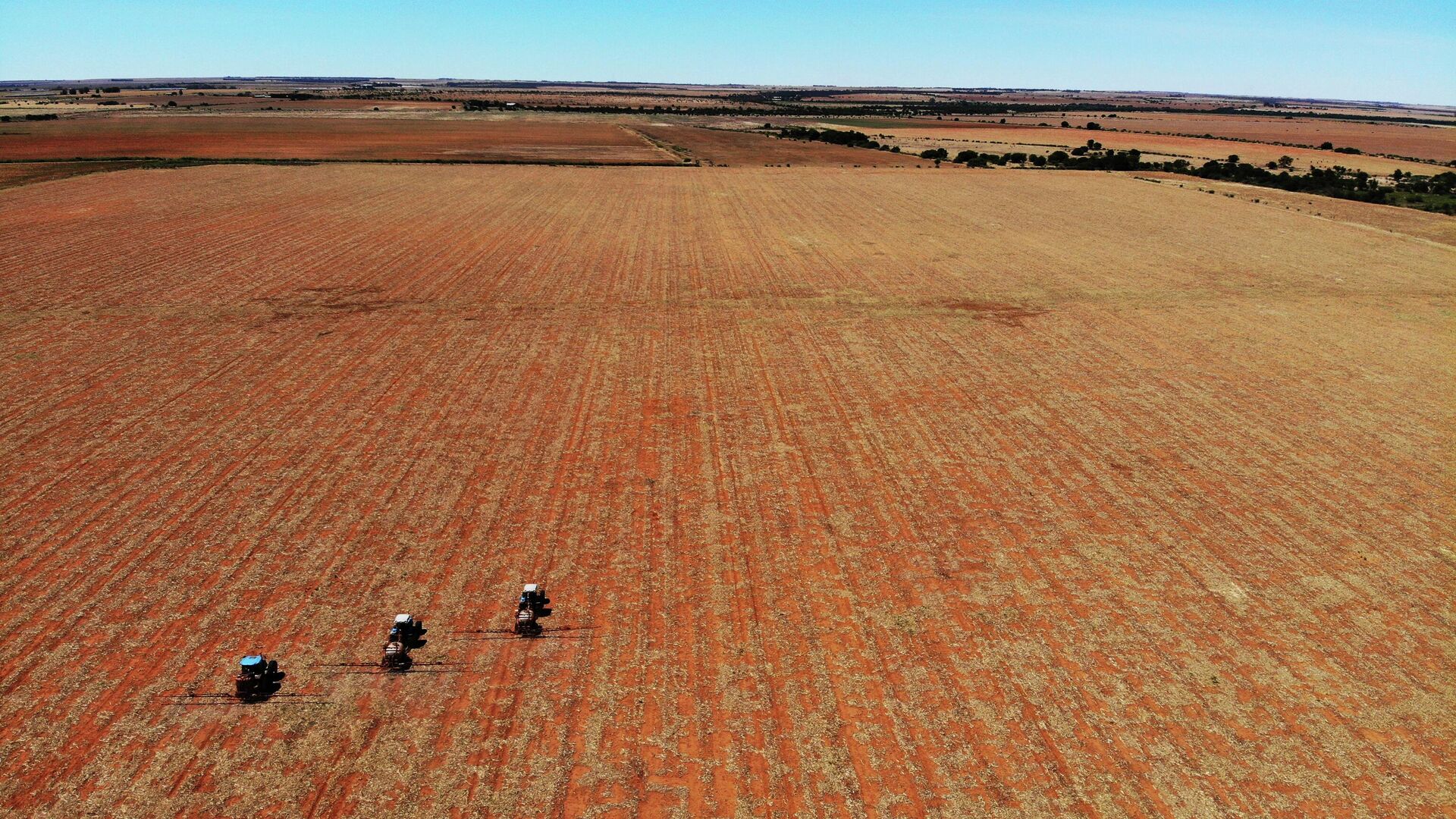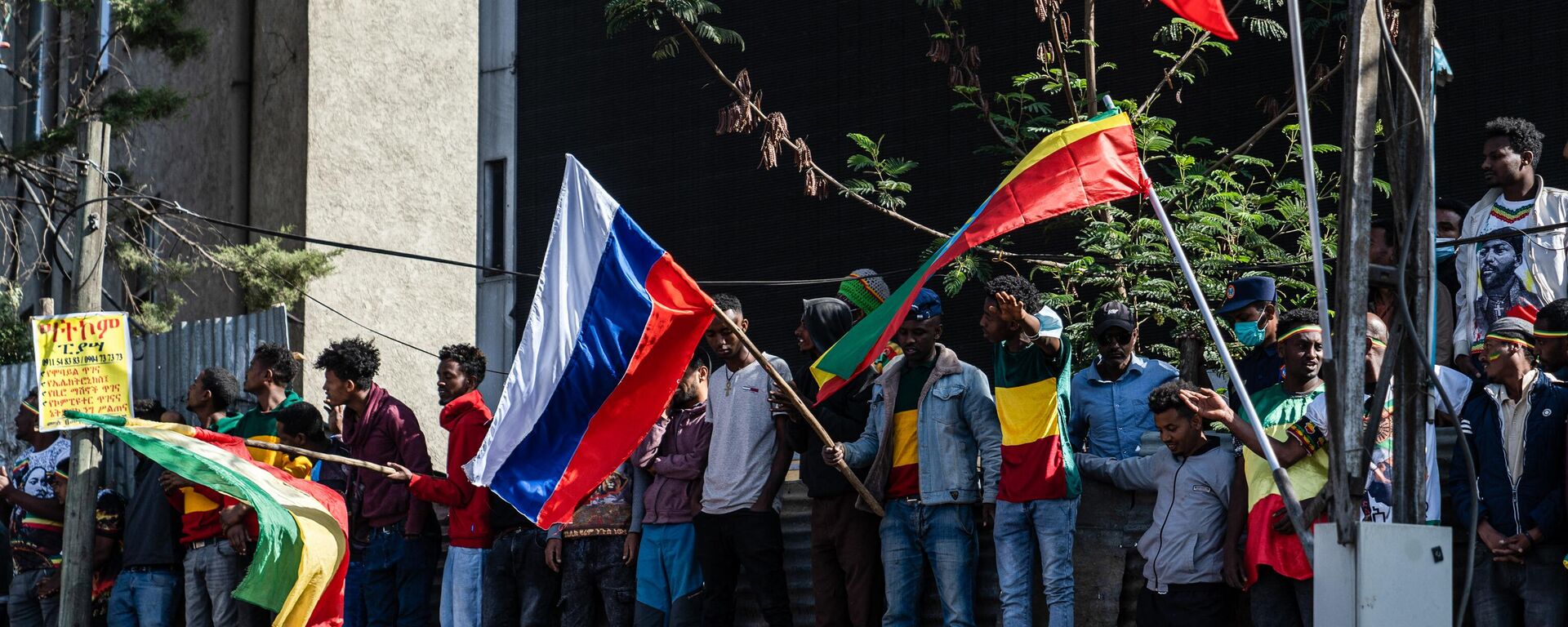https://en.sputniknews.africa/20230704/russia-could-help-harare-become-fertilizer-hub-zimbabwean-minister-1060326409.html
Russia Could Help Harare Become Fertilizer Hub: Zimbabwean Minister
Russia Could Help Harare Become Fertilizer Hub: Zimbabwean Minister
Sputnik Africa
President of the African Export-Import Bank Benedict Okey Oramah said in mid-June that Africa needs fertilizer supplies from Russia to increase food production... 04.07.2023, Sputnik Africa
2023-07-04T18:02+0200
2023-07-04T18:02+0200
2023-07-05T14:41+0200
zimbabwe
southern africa
russia
fertilizers
trade
opinion
africa in details
https://cdn1.img.sputniknews.africa/img/07e7/07/04/1060330836_0:160:3073:1888_1920x0_80_0_0_8fb76a1e7e1e50a8ae517b93119bf36e.jpg
Zimbabwe views the possible arrival of Russian fertilizer companies interested in investing in the country as an opportunity to turn the Southern African nation into a continental fertilizer center, Monica Mutsvangwa, minister of information, publicity and broadcasting of Zimbabwe, told Sputnik Africa.According to the minister, Zimbabwe would like Russian investors to make Harare "a hub where other African countries can actually benefit by getting cheaper and good farm implements and fertilizers."Mutsvangwa stressed that Russia's high level of fertilizer production, as well as good relations between the countries, will contribute to this goal.Another important factor is that Zimbabwe "has some of the inputs for producing fertilizer, for example, phosphorus."For Russian fertilizer operations in Zimbabwe, the minister pointed out, "the most important thing" is to find an alternative payment system, in view of export sanctions imposed on Moscow.Apart from that, Mutsvangwa remarked that the Southern African country, through the president's command agriculture input scheme, has been able to achieve household food sustainability, however, "certainly we need more fertilizers and other inputs."In May, Russian President Vladimir Putin said during a phone conversation with his South African counterpart Cyril Ramaphosa that the Russian side was ready to supply substantial quantities of grain and fertilizers to African states in need, including on a free-of-charge basis.
https://en.sputniknews.africa/20230701/high-time-for-russians-to-work-on-economic-issues-in-africa-ethiopian-ambassador-1060267151.html
zimbabwe
southern africa
russia
Sputnik Africa
feedback@sputniknews.com
+74956456601
MIA „Rossiya Segodnya“
2023
Maxim Grishenkin
https://cdn1.img.sputniknews.africa/img/07e7/0a/17/1063018107_0:0:1104:1103_100x100_80_0_0_03090c85a11f5d2e8a19cf1d989443c9.jpg
Maxim Grishenkin
https://cdn1.img.sputniknews.africa/img/07e7/0a/17/1063018107_0:0:1104:1103_100x100_80_0_0_03090c85a11f5d2e8a19cf1d989443c9.jpg
News
en_EN
Sputnik Africa
feedback@sputniknews.com
+74956456601
MIA „Rossiya Segodnya“
Sputnik Africa
feedback@sputniknews.com
+74956456601
MIA „Rossiya Segodnya“
Maxim Grishenkin
https://cdn1.img.sputniknews.africa/img/07e7/0a/17/1063018107_0:0:1104:1103_100x100_80_0_0_03090c85a11f5d2e8a19cf1d989443c9.jpg
zimbabwe, southern africa, russia, fertilizers, trade, africa in details
zimbabwe, southern africa, russia, fertilizers, trade, africa in details
Russia Could Help Harare Become Fertilizer Hub: Zimbabwean Minister
18:02 04.07.2023 (Updated: 14:41 05.07.2023) Exclusive
President of the African Export-Import Bank Benedict Okey Oramah said in mid-June that Africa needs fertilizer supplies from Russia to increase food production on the continent, while some countries use only 10% of the recommended levels.
Zimbabwe views the possible arrival of Russian fertilizer companies interested in investing in the country as an opportunity to turn the Southern African nation into a continental fertilizer center, Monica Mutsvangwa, minister of information, publicity and broadcasting of Zimbabwe, told Sputnik Africa.
According to the minister, Zimbabwe
would like Russian investors to make Harare "a hub where other African countries can actually benefit by getting cheaper and good farm implements and fertilizers."
Mutsvangwa stressed that Russia's high level of fertilizer production, as well as good relations between the countries, will contribute to this goal.
"We know the Russians are very good at producing fertilizer and other inputs which are required for agriculture. And this will give us a good opportunity for Russian companies to come to Zimbabwe, considering the good relationship between the two countries," Mutsvangwa noted.
Another important factor is that Zimbabwe "has some of the inputs for producing fertilizer, for example, phosphorus."
For Russian fertilizer operations in Zimbabwe, the minister pointed out, "the most important thing" is to find an
alternative payment system, in view of export
sanctions imposed on Moscow.
"We would like, obviously, these sanctions to be removed because the fertilizer which we are accessing at the moment is much more expensive and we would like to really produce together with the Russian companies so that at least our fertilizers can actually go down in terms of the price," Mutsvangwa underlined.
Apart from that, Mutsvangwa remarked that the Southern African country, through the president's command agriculture input scheme, has been able to achieve household food sustainability, however, "certainly
we need more fertilizers and other inputs."
In late June, Russian Foreign Minister Sergey Lavrov stated that fertilizer and grain exports continue despite obstacles from the West, which Moscow has managed to bypass.
In May, Russian President Vladimir Putin said during a phone conversation with his South African counterpart Cyril Ramaphosa that the Russian side was ready to supply substantial quantities of grain and fertilizers to African states in need, including on a free-of-charge basis.



